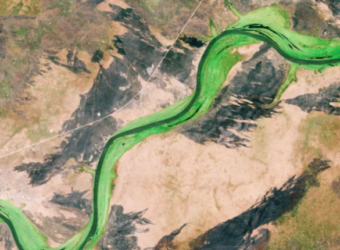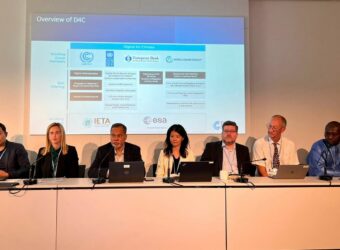The recent World Bank – International Monetary Fund Annual Meetings in Marrakech featured a focused discussion on the need for enhanced environmental and climate change statistics, particularly in countries with limited resources. In the context of the International Monetary Fund’s Capacity Development (CD) talk, the engagement of ESA’s Global Development for Assistance (GDA) climate resilience consortium took centre stage, emphasising the dedication to help nations in adjusting to the hurdles presented by climate change.
A key theme of the event was the need for improved statistical capabilities in environmental monitoring and the development of climate-resilient policies. One of the highlighted programmes, the Environmental and Climate Change Statistics Capacity Development Programme, championed by the IMF’s Statistics Department (STA), sought to equip IMF member countries with the necessary tools and resources to generate comprehensive environmental and climate change analytical tools. This programme aims to inform the formulation of effective financial and macroeconomic policies to address the evolving challenges of climate change.
At the conference, various speakers, among them Alessandra Alfieri, Assistant Director in the IMF’s Statistics Department, underscored the significance of ESA’s GDA in creating integrated and detailed geospatial climate hazard indicators for evaluating climate risks. The proposed platform for climate risk assessment, whose capabilities have been demonstrated over Bangladesh, aims to fortify initiatives for climate resilience by integrating data from satellites, climate projections and socioeconomic sources.
The recorded demonstration of the climate risk assessment platform highlighted its dynamic functionalities in combining two essential layers: the exposure layer namely gridded Gross Domestic Product (GDP) projections, and the hazard layer, namely annual anomaly of days with a heat index exceeding 35 degrees, offering crucial insights into upcoming climate risks assessment.
This collaborative effort, reinforced by the participation of ESA’s GDA climate consortium, signifies a step toward building a sustainable and resilient future in the face of escalating climate challenges. The World Bank’s and IMF’s commitment to fostering partnerships and initiatives focused on environmental sustainability remains a cornerstone in the global pursuit of a more resilient and ecologically balanced world.
Watch the full video: here








